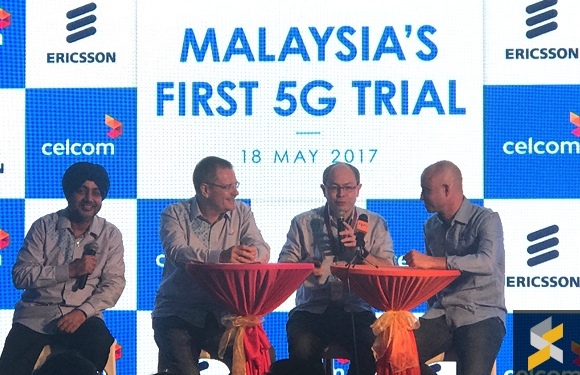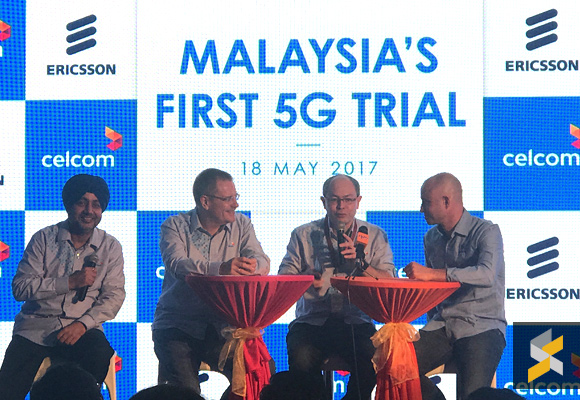Celcom and Ericsson today had teamed up to showcase Malaysia’s first 5G trial. Not only this is the first in the country but it’s also the first 5G trial to be conducted in South East Asia utilising the higher 28GHz band.
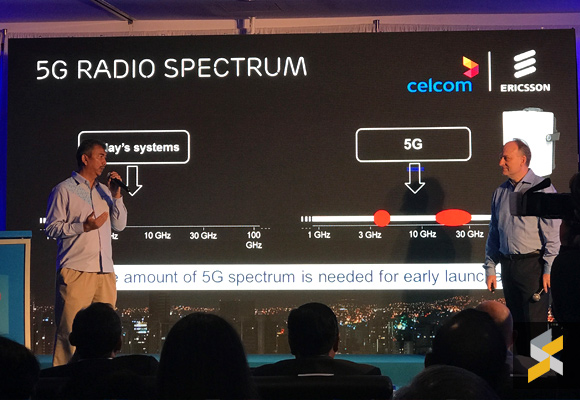
5G opens up new possibilities for an even connected world. With 5G, more devices can be connected simultaneously beyond the usage of mobile, tablets and computers. This includes IoT (Internet of Things), real-time virtual reality and mission critical applications that involve robotics and autonomous vehicle systems.
Apart from delivering high speed, 5G offers ultra low latency and higher throughput. On top of that, there’s also Narrowband 5G which allows a swarm of low energy and low bandwidth IoT sensors and monitors to be connected more efficiently.
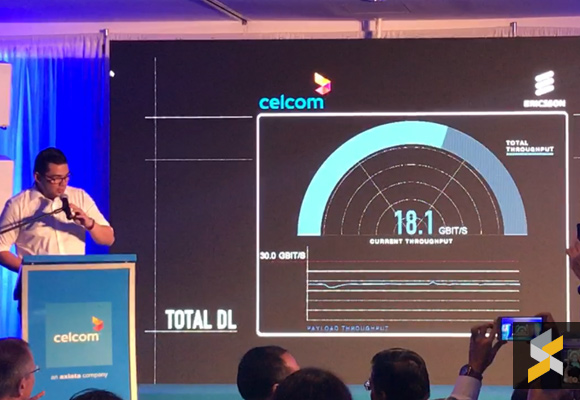
During Celcom and Ericsson’s trial lab at Menara Celcom, they had demonstrated its capabilities of hitting 18Gbps speeds on its 5G radio prototype. 5G isn’t ratified at the moment and it will take a couple of years before it is commercially available.
In certain markets, some operators have plans to conduct 5G consumer trials as early as this year. In the US, Verizon will offer fixed wireless 5G services in 11 cities starting Q2 2017 in partnership with Ericsson and Samsung. Verizon’s trials will utilise both 28GHz and 39GHz spectrum bands.
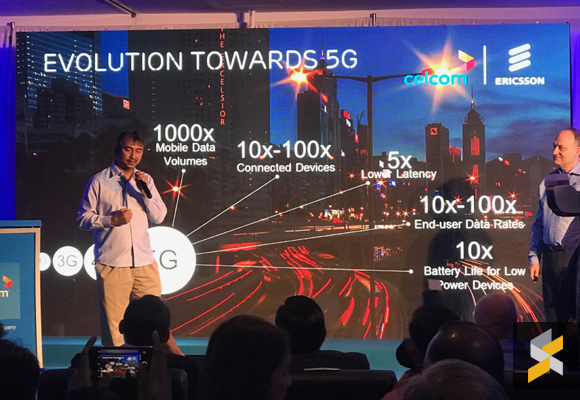
When we asked Celcom, they mentioned there are currently no plans to conduct 5G user trials in Malaysia. However, they aim to deploy 5G once it is commercially available sometime in 2020. By then, consumers should have access to a variety of 5G supported devices.
In the meantime, Celcom is bridging that gap by rolling out its Lightning Fast LTE Advanced Network with 4×4 MIMO and 256 QAM. This would offer up to 480Mbps download with a supported handset like the Galaxy S8 and Huawei P10 Plus.
Their Lightning Fast network will be rolled out the beginning of August 2017 starting in the Klang Valley. Celcom wants to increase its 4G LTE footprint with 2800 new sites this year to cover 85% of the population by year end. This includes 40% population for LTE Advanced and 10% for Lightning Fast LTE Advanced. As an evolution towards 5G, Celcom is also looking to deploy LTE Advanced Pro with more than 1Gbps speeds next year.

